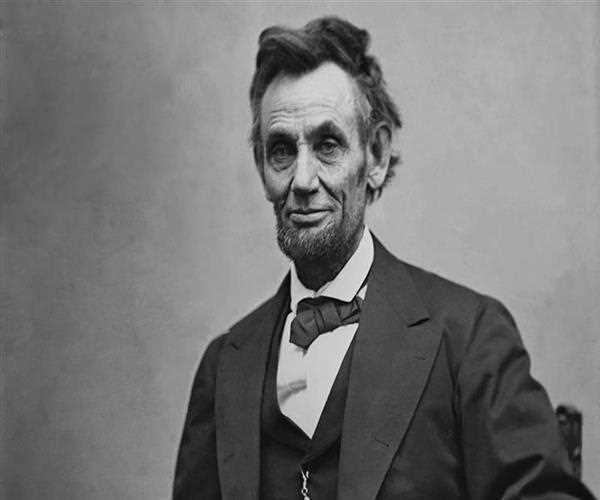
27-Apr-2023
Everything you need to know about Abraham Lincoln- Facts, Birthday and Assassination
Abraham Lincoln is one of the most well-known and respected figures in American history. As the 16th President of the United States, he played a critical role in leading the nation through the Civil War and in ending slavery. In this view, we will explore some of the most interesting facts about Lincoln's life, his birthday, and his tragic assassination.
Early Life
Abraham Lincoln was born on February 12, 1809, in a log cabin in Hodgenville, Kentucky. His parents, Thomas and Nancy Lincoln, were farmers and he had a younger sister, Sarah. The family moved to Indiana when Lincoln was seven years old, and he lived there until he was 21. He received little formal education but was an avid reader and taught himself law.
In 1830, Lincoln and his family moved to Macon County in southern Illinois. There, he got a job working on a river flatboat that took freight to New Orleans down the Mississippi River. Lincoln became involved in local politics as a supporter of the Whig Party after settling in New Salem, Illinois, where he worked as a postmaster and shopkeeper. In 1834, he was elected to the Illinois state legislature.
Like his Whig legends Henry Earth and Daniel Webster, Lincoln went against the spread of subjugation to the domains, and had a stupendous vision of the extending US, with an emphasis on trade and urban communities instead of farming.
He married Mary Todd in 1842, a wealthy Kentucky belle who had many suitors, including Lincoln's future political rival Stephen Douglas. Four more children were born to the Lincolns, but only one of them reached adulthood: Thomas "Tad" Lincoln (1853-1871), Robert Todd Lincoln (1843–1926), Edward Baker Lincoln (1846–1850), and William Wallace Lincoln (1850–1862).
Career and Politics
Lincoln worked various jobs, including a shopkeeper, surveyor, and postmaster, before being elected to the Illinois House of Representatives in 1834. He later served in the US House of Representatives from 1847 to 1849. In 1860, Lincoln was elected President of the United States, defeating three other candidates. His presidency was marked by the Civil War and his efforts to preserve the Union and end slavery.
However, he was pushed back into national politics by a series of events: Douglas, a main liberal in Congress, had pushed through the section of the Kansas-Nebraska Act (1854), which pronounced that the citizens of every region, as opposed to the national government, reserved the option to conclude whether the domain ought to be slave or free.
On October 16, 1854, Lincoln went before a huge group in Peoria to discuss the benefits of the Kansas-Nebraska Act with Douglas, upbraiding subjection and its expansion and calling the establishment an infringement of the most essential principles of the Statement of Freedom.
Lincoln joined the new Republican Party in 1856, which was largely formed to oppose slavery's expansion into the territories. He then ran for the Senate again that year after unsuccessfully running for it in 1855. Lincoln gave his now-famous "house divided" speech in June. In it, he said, "This government cannot endure, permanently, half slave and half free." He drew inspiration from the Gospels.
Following that, Lincoln engaged Douglas in a series of well-known debates; however he lost the Senate political race, Lincoln's exhibition made his standing broadly.
Emancipation Proclamation
On January 1, 1863, Lincoln issued the Emancipation Proclamation, which declared that all slaves in the Confederate states "shall be then, thenceforward, and forever free." The Proclamation did not immediately free all slaves, but it did represent a significant step towards ending slavery and laying the groundwork for the eventual passage of the 13th Amendment to the US Constitution, which abolished slavery throughout the entire country.
Gettysburg Address
On November 19, 1863, Lincoln delivered the Gettysburg Address, one of the most famous speeches in American history. The speech was given at the dedication of the Soldiers' National Cemetery in Gettysburg, Pennsylvania, where thousands of soldiers who died in the Battle of Gettysburg were buried. In the speech, Lincoln praised the soldiers for their sacrifice and dedication, and spoke of the need to continue the fight for freedom and equality for all.
Assassination
On April 14, 1865, while attending a play at Ford's Theatre in Washington, D.C., Lincoln was shot by John Wilkes Booth, an actor and Confederate sympathizer. Lincoln was taken to a nearby boarding house where he died the following morning. The assassination shocked the nation and had a profound impact on American history.
Legacy
Abraham Lincoln's legacy as a leader, statesman, and champion of freedom and equality continues to inspire people around the world. He is widely regarded as one of the greatest US Presidents, and his contributions to the country have had a lasting impact. Lincoln's birthday, February 12, is a national holiday in the United States, and his life and legacy are celebrated every year.
Abraham Lincoln's life and career are a testament to the power of hard work, perseverance, and dedication to a cause. He overcame many challenges and obstacles to become one of the most respected and revered leaders in American history. His legacy continues to inspire and influence people around the world, and his contributions to the country will be remembered for generations to come.

SEO and Content Writer
I am Drishan vig. I used to write blogs, articles, and stories in a way that entices the audience. I assure you that consistency, style, and tone must be met while writing the content. Working with the clients like bfc, varthana, ITC hotels, indusind, mumpa, mollydolly etc. has made me realized that writing content is not enough but doing seo is the first thing for it.
Join Our Newsletter
Subscribe to our newsletter to receive emails about new views posts, releases and updates.
Copyright 2010 - 2026 MindStick Software Pvt. Ltd. All Rights Reserved Privacy Policy | Terms & Conditions | Cookie Policy